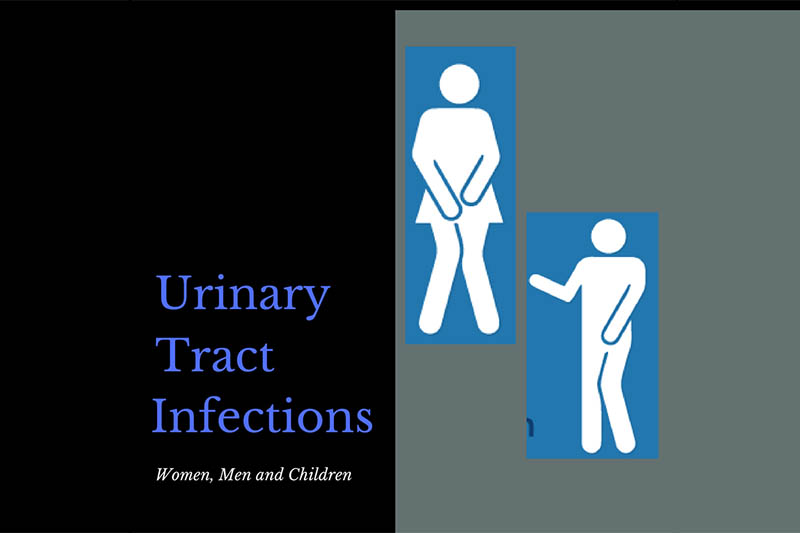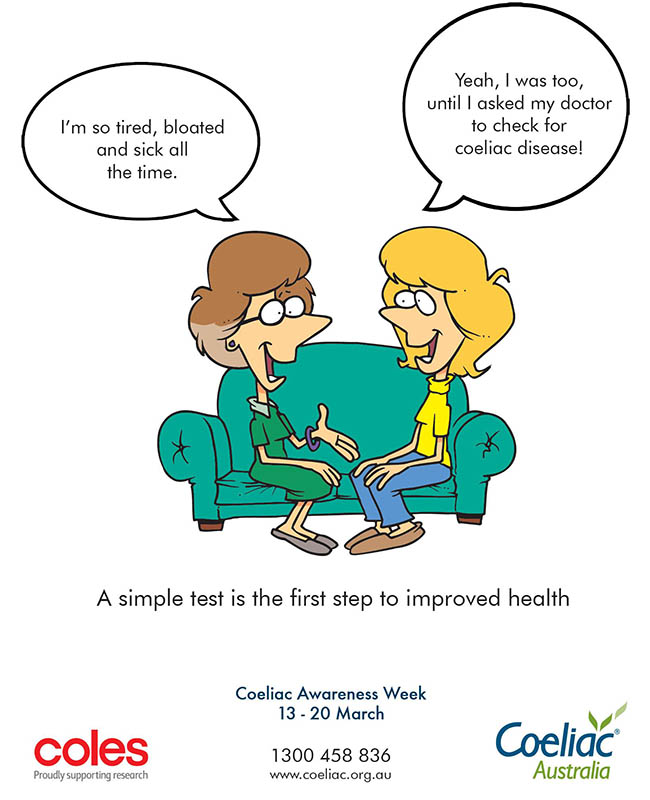
What are UTI’s? Urinary Tract Infections
Do you… Frequently or urgently need to urinate Often only pass small amounts of urine Have Pain or burning sensation when urinating These can be symptoms of urinary tract infections. There

(also known as celiac sprue or gluten-sensitive enteropathy, Coeliac disease)
Coeliac disease is a common genetic disorder that affects the small intestine and the body’s ability to digest and absorb nutrients. Coeliac disease can be serious, and if left untreated, can result in such conditions as vitamin and mineral deficiencies, malnutrition, small intestine cancer, and anaemia.
It can affect anyone but it more common in people with genetic disorders like Turner Syndrome and Down Syndrome. People with conditions like type 1 diabetes, autoimmune thyroid disease, autoimmune liver disease, rheumatoid arthritis and microscopic colitis are also at risk of developing celiac disease although it is more often seen in people of northern European descent.
In coeliac disease, the lining of the small intestine is damaged by the body’s own immune system after a person eats a food containing gluten.
Gluten is a protein found in certain grains, such as wheat, oats, barley, and rye. When partially digested foods containing gluten reach the small intestine, an abnormal reaction occurs in the intestinal lining.
The lining is made of many villi, small finger-like bumps, which flatten out when exposed to gluten. This decreases the amount of surface area of the small intestine that is available to digest and absorb nutrients.
The symptoms of coeliac disease vary between individuals and amount of gluten that is consumed. Some people may have no symptoms at all. Symptoms can affect the digestive tract as well as other parts of the body.
They can include excessive gas, abdominal bloating, diarrhoea, bone pain, weight loss, and fatigue and result in serious complications such as vitamin deficiencies, osteoporosis, lymphoma, infertility, chronic poor health, depression and teeth problems
Most people with celiac disease who stick to a gluten-free diet experience an improvement in symptoms. Rarely, people may also need to take medications, including corticosteroids, to reduce inflammation of the small intestine. Treatment also involves treating any complications, such as vitamin deficiencies.
Some of the diagnostic blood tests available for Coeliac Disease include the following and can be ordered by your doctor. Don’t stop eating foods that contain gluten until after you have been diagnosed as stopping gluten means the tests will be unreliable.
Some of the latest treatments for Coeliac Disease include the following;

Do you… Frequently or urgently need to urinate Often only pass small amounts of urine Have Pain or burning sensation when urinating These can be symptoms of urinary tract infections. There
Disclaimer – Our intent is not to diagnosis but to offer information on therapy choices and practitioners. Information on this site is intended general educational purposes only. Any statements made are carefully referenced and any information, products or services discussed are not intended to diagnose, cure, treat or prevent any disease or illness. Please consult a healthcare practitioner before making a choice.